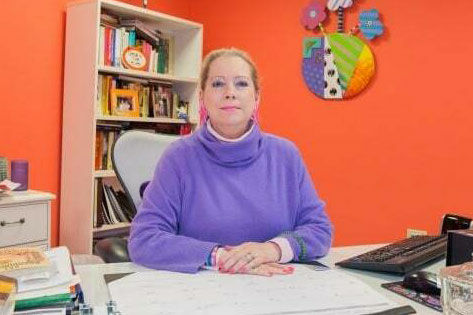Sharon Raimo, a special education teacher, hired in 1993 to teach a class of 19 intellectually disabled students, managed for over 28 years to transform that classroom in an Arlington Catholic church basement into St. Coletta of Greater Washington — a nonsectarian, nonprofit agency serving intellectually disabled children and adults in D.C., northern Virginia and suburban Maryland.
Now, Raimo says she is retiring, effective Jan. 4.
She’s followed a simple philosophy in educating and expanding the horizons of those with intellectual disabilities.

“Looking to decipher what people can do, rather than what we can blatantly see they can’t do, is the way to approach special education … they have real gifts, and they can learn in other ways, and that’s what we’ve always tried to do,” said Raimo, CEO of St. Coletta of Greater Washington.
The agency now has facilities in Southeast D.C., Alexandria and Rockville, serving nearly 500 children and adults and employing about 400 people.
COVID-19 has brought hard challenges, including moving instruction online. Yet, the pandemic hasn’t hurt sales from the agency’s Coletta Collections — jewelry, accessories and home décor fashioned by individuals in St. Coletta’s Adult Services Division.
“I think people, right now, are looking for ways to spend money and to buy gifts that are meaningful, and so Coletta Collections has been selling like hotcakes,” Raimo said.
It was no small task for a special education teacher to transform a class in a church basement into a $23 million organization and one of the area’s most important providers of special education.
“I had to learn going along,” Raimo said. “Being a special ed teacher doesn’t teach you to be an entrepreneur or to deal with real estate or to do industrial revenue bonds or anything like that, so I had to learn.”
Raimo is confident in the future of her organization.
“They’re in a very good place. We’ve assembled a very good team, and I think the agency is poised to grow into the future,” Raimo said.
One thing the retiring CEO is uncertain about is her post-retirement plans due to the pandemic.
“We can say we’re making all kinds of plans to do things, but it’s a very unsure time … I think I’m going to just kick back for a while,” Raimo said.
What’s certain is Raimo’s philosophy about dealing with those with intellectual disabilities, including Down syndrome.
“Never underestimate the disabled,” Raimo said. “Look for what they can do and don’t focus on what they can’t do.”








